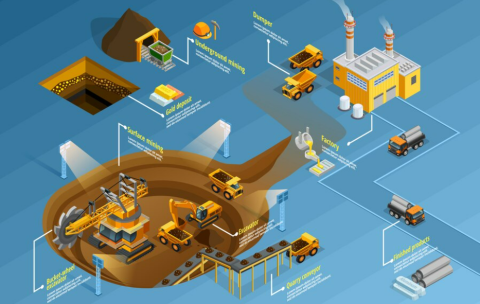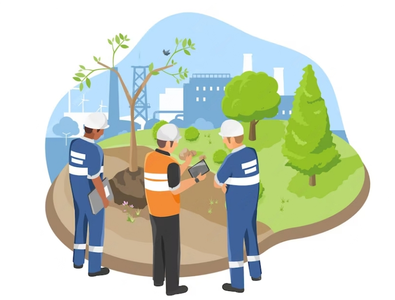Week 1: Fundamentals of Energy Management in Primary Industries (4 Hours)
Session 1 (2 Hours): Introduction to Energy Management in Primary Industries
Overview of Energy Consumption and Needs in Primary Industries
Understanding the Energy Lifecycle in Industries such as Mining, Agriculture, and Forestry
Global Energy Trends and Their Impact on Primary Industries
Session 2 (2 Hours): Sustainability and Renewable Energy Sources
Principles of Sustainable Energy Management
Exploration of Renewable Energy Sources (Solar, Wind, Biomass)
Case Studies on Successful Renewable Energy Integration in Primary Industries
Week 2: Energy Efficiency and Technology (6 Hours)
Session 3 (2 Hours): Energy Efficiency Techniques
Strategies for Energy Conservation and Efficiency in Primary Industries
Energy Auditing and Monitoring Practices
Implementing Energy-Saving Measures in Industrial Operations
Session 4 (2 Hours): Technological Innovations in Energy Management
Role of Technology in Enhancing Energy Efficiency
Advanced Tools and Techniques for Energy Management (AI, IoT, Automation)
Digital Transformation in Energy Resource Management
Session 5 (2 Hours): Environmental Impact and Regulation
Environmental Impacts of Energy Use in Primary Industries
Regulatory Frameworks for Energy Consumption and Emissions
Implementing Eco-friendly Practices in Energy Management
Week 3: Strategic Energy Planning and Financial Aspects (6 Hours)
Session 6 (2 Hours): Strategic Planning for Energy Management
Developing Long-term Energy Strategies for Industrial Operations
Risk Management and Contingency Planning in Energy Resource Management
Scenario Analysis and Strategic Decision-Making
Session 7 (2 Hours): Financial and Economic Aspects of Energy Management
Economic Analysis of Energy Choices
Financing Energy Projects in Primary Industries
Cost-Benefit Analysis of Energy Efficiency Investments
Session 8 (2 Hours): Leadership and Change Management in Energy Transition
Leading Organizational Change Towards Sustainable Energy Practices
Building a Culture of Energy Efficiency and Sustainability
Change Management Strategies in Energy Resource Management
Week 4: Case Studies and Capstone Project (4 Hours)
Session 9 (2 Hours): Case Studies in Energy Resource Management
Analysis of Real-world Case Studies
Discussions on Best Practices and Lessons Learned
Interactive Sessions on Current Challenges in Energy Management
Session 10 (2 Hours): Capstone Project Presentations and Course Conclusion
Development and Presentation of Capstone Projects Focusing on Energy Management Challenges
Group Discussions and Feedback
Course Summary and Reflection on Future Trends in Energy Management
This course structure offers MBA students a comprehensive overview of energy resource management in primary industries, combining lectures, case studies, and project work. The curriculum is designed to prepare students for strategic roles in energy management, emphasizing sustainability, innovation, and strategic planning.










